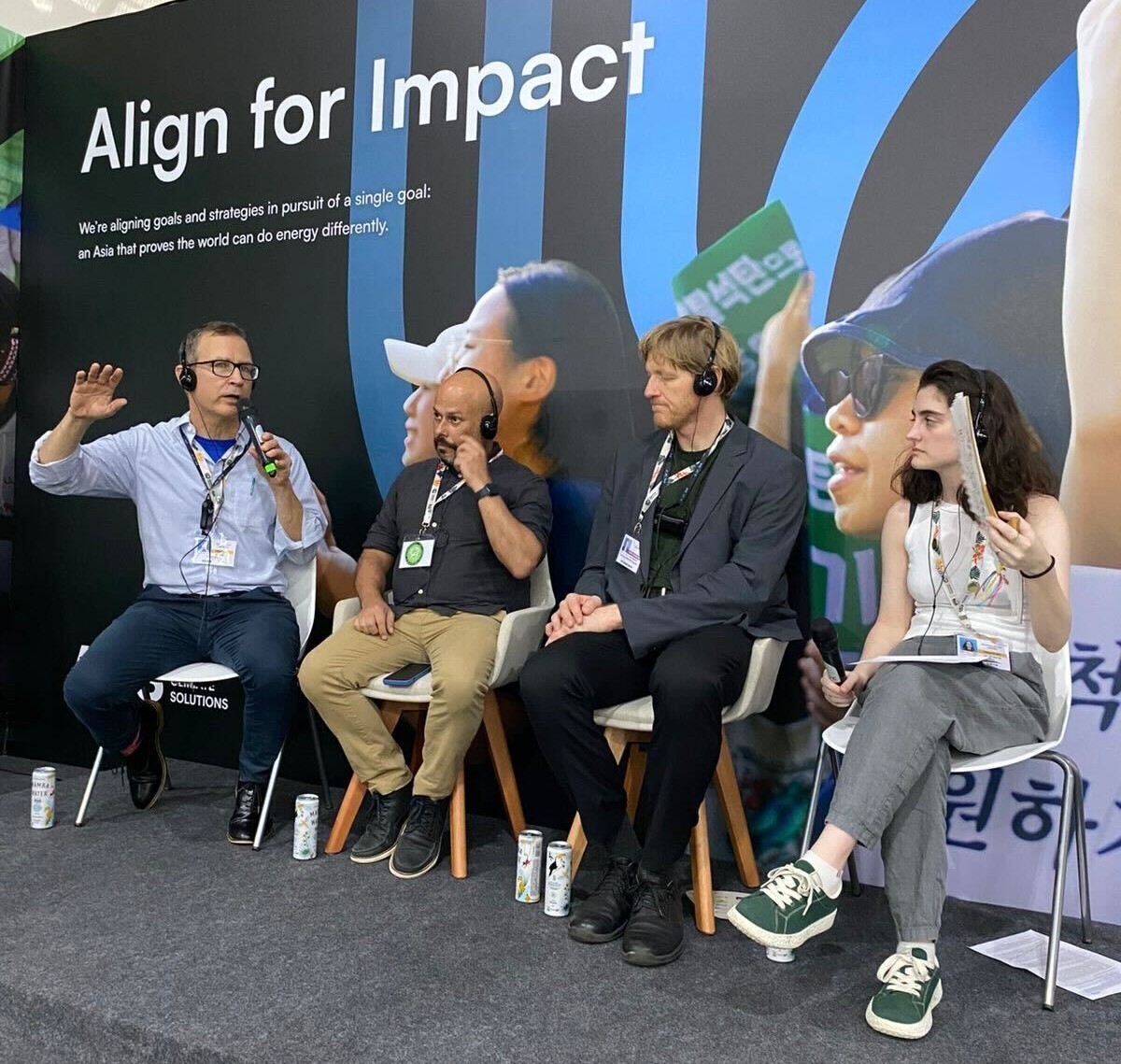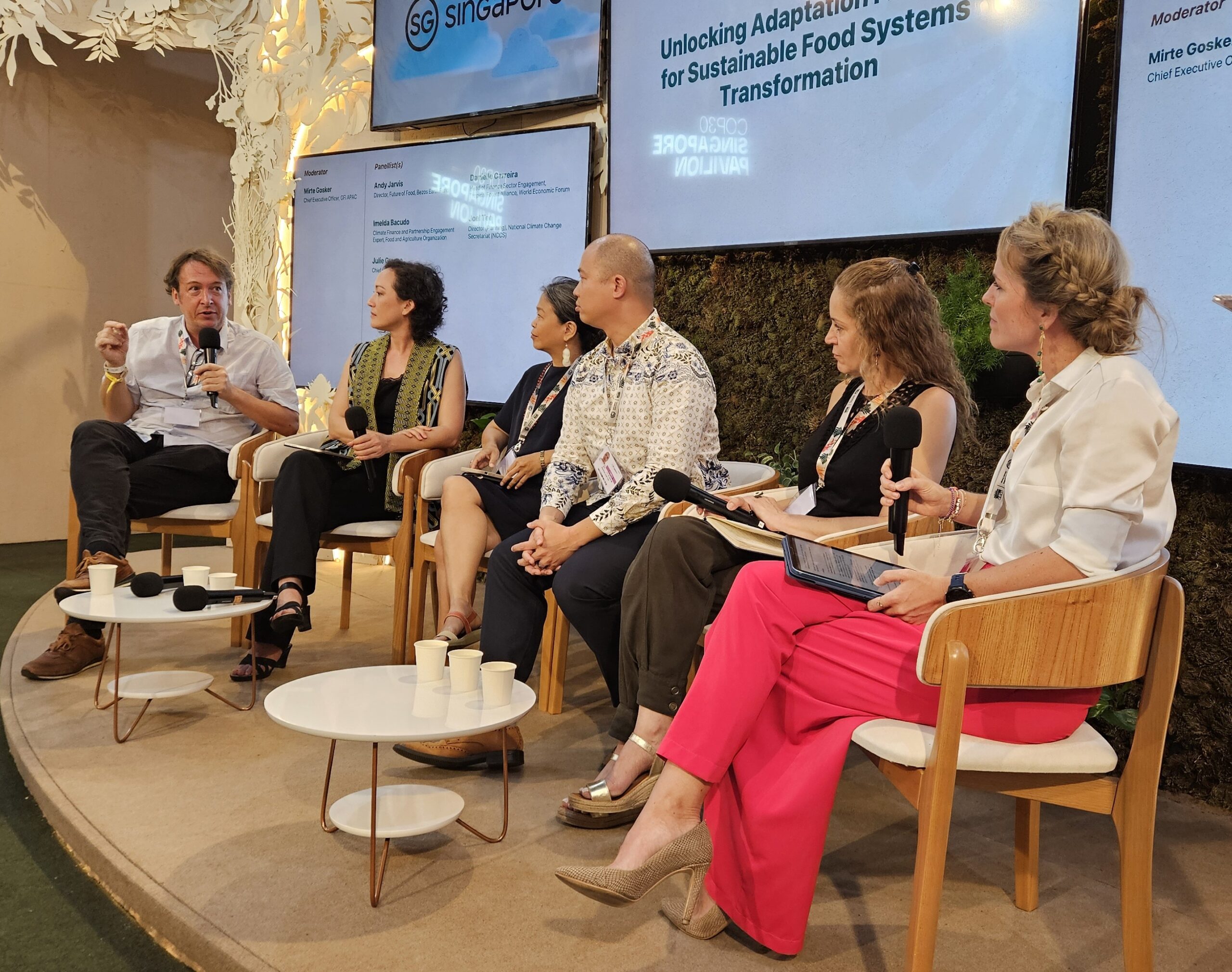For sustainable foods, “finance really is the enabler,” says Singapore environmental minister
Just hours ago, a series of high-profile sessions focused on scaling up sustainable foods concluded at COP30—the United Nations Climate Change Conference—in Belém, Brazil, where negotiators from more than 190 countries are working through the night to forge consensus on which climate fixes to fund.
More than at any previous conference, international pressure has been building this year to include future-proof protein solutions like plant-based and cultivated meat in global climate strategies, given that food production alone will be enough to put the Paris climate goals out of reach, even if the world manages to resolve urgent challenges on energy, transportation, and other top emissions sources.

A head-on collision between consumer demand and planetary limits
Even though this year’s COP is being held in the Amazon, Asia’s food system is deeply intertwined with the environmental emergencies taking place in the summit’s shrinking backyard. In fact, most of the soybeans fed to farmed animals in China and other fast-growing Asian countries are imported from Brazil—directly fueling the deforestation that China, Singapore, Japan, South Korea, and more than 100 other countries have publicly pledged to end over the next five years.
“A shift in trajectory is urgently needed,” GFI founder Bruce Friedrich said in his address at the Asia Climate Solutions Pavilion, “Not by begging consumers to stop eating meat, but by upgrading the way meat is made.”

APAC already contributes the largest share of greenhouse gas emissions from agriculture of any region, Friedrich noted. Under a business-as-usual scenario, Asia’s demand for meat and seafood is expected to soar by an additional 70-plus percent by 2050.
In other words, global efforts to halt deforestation and greenhouse gas emissions will hinge, in large part, on how quickly Asia scales up sustainable proteins.
Unlocking new financing for scalable food solutions
One of the most jarring statistics of the conference came from GFI APAC CEO Mirte Gosker, during her address to climate leaders from Brazil, Singapore, China, and the US: “Even though food and agriculture account for one-third of all global emissions, the sector has received less than five percent of the climate financing.” Without fixing this discrepency, Gosker said, sustainable proteins cannot scale at the speed we need.

Leading food policy expert Prof. Fan Shenggen from China Agricultural University echoed Gosker’s sentiments during a subsequent panel. “If you go to the Chinese pavilion next door, every day they are discussing EVs, renewable energy,” adding that in 10 years, he hopes the pavilion will instead be showcasing its sustainable protein solutions. “The China agricultural research investment—total investment—is bigger than the US, Brazil, and India combined,” and early signs from China’s forthcoming five-year planning process indicate that the government could soon lean more heavily into alternative proteins and biomanufacturing, because it “recognises the importance.”

Singapore is also uniquely well-positioned to address all manner of climate solutions by bringing the key public, private, and philanthropic players to the table, Minister for Sustainability and the Environment Ms. Grace Fu noted. “We know that finance really is the enabler across many sectors, be it decarbonisation, power, water, food, coastal protection—finance is the common denominator,” she told Gosker during an intimate fireside chat. “We need innovation to address the needs of the food sector, on adaptation and resilience, and the potential is just out there waiting for finance to be activated.”

“In something like the alternative protein sector … the solutions are there,” added Singapore’s National Climate Change Secretariat director Mr. Joel Tee. “Unlocking that financing stack, that capital stack, is the big innovation that we should be looking at.”

Given the current state of global investments for sustainable protein solutions, “climate finance needs to embrace the complexity in food systems,” said Andy Jarvis, who leads ‘future foods’ initiatives for the Bezos Earth Fund.
Philanthropic capital should go where the free market is failing to deliver, Jarvis said. “I’d love to see a real, meaningful coalition around sustainable protein emerge in the world—where the meat industry, alternative proteins, governments, all of the finance come around and realise that this isn’t something to see as a ‘problem area,’ it’s something to see as a ‘massive solution’ area.”
“We see alternative proteins as a big game-changer in food systems,” he added. “There’s no Paris goal without food system transformation, and I don’t think there is any chance of food system transformation without looking at protein. This is mission-critical for planet Earth.”
Onwards,

Ryan Huling
Senior Writer | GFI APAC
Haven’t subscribed yet? Join our mailing list below to be the first to hear about updates like this!
